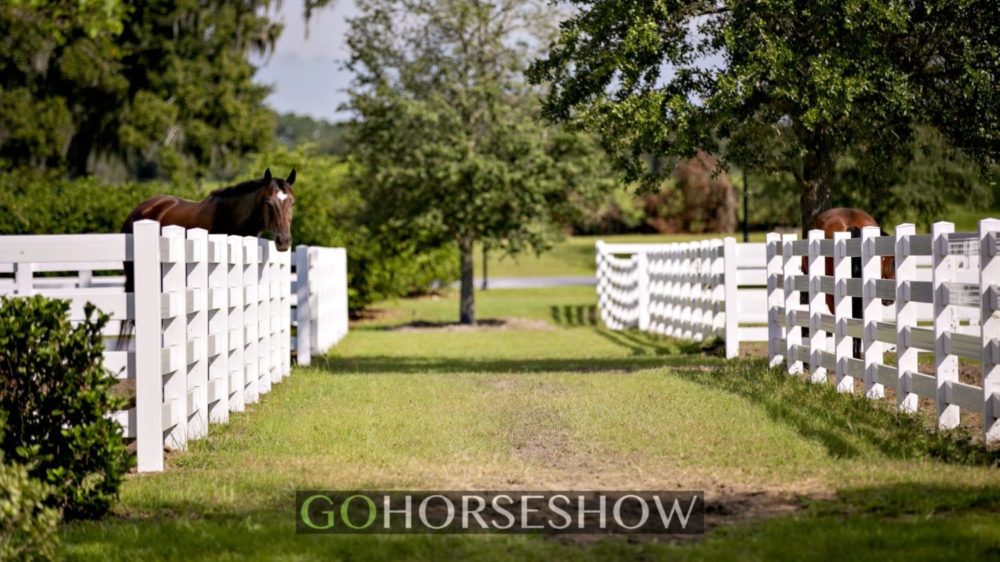We’ve all been there. The “horseshow hangover” is real, and after a string of major shows, it’s nice to give yourself a little break. But if you want a break from the show ring, imagine how your horse feels.
Like human athletes, horses also need a break from challenging work to avoid the burnout that can come with regular competing. However, it also isn’t good for equine athletes to go from heavy work at a show, to sitting idly in a stall in the name of a “well-deserved vacation.” Indeed, horses are creatures of habit and often thrive while maintaining a program, even during the “off-season.”
We spoke to top trainers Ryan Cottingim (Ryan Cottingim Show Horses), Alyse Roberts (Alyse Roberts Performance Horses), and Shannon Vroegh Walker (Show Horses By Shannon) for tips on how to give your horse a productive break in the wake of big shows while keeping them fit and sane.
Turnout Time
All of our experts agree on the importance of turnout time for a horse’s physical and mental health.
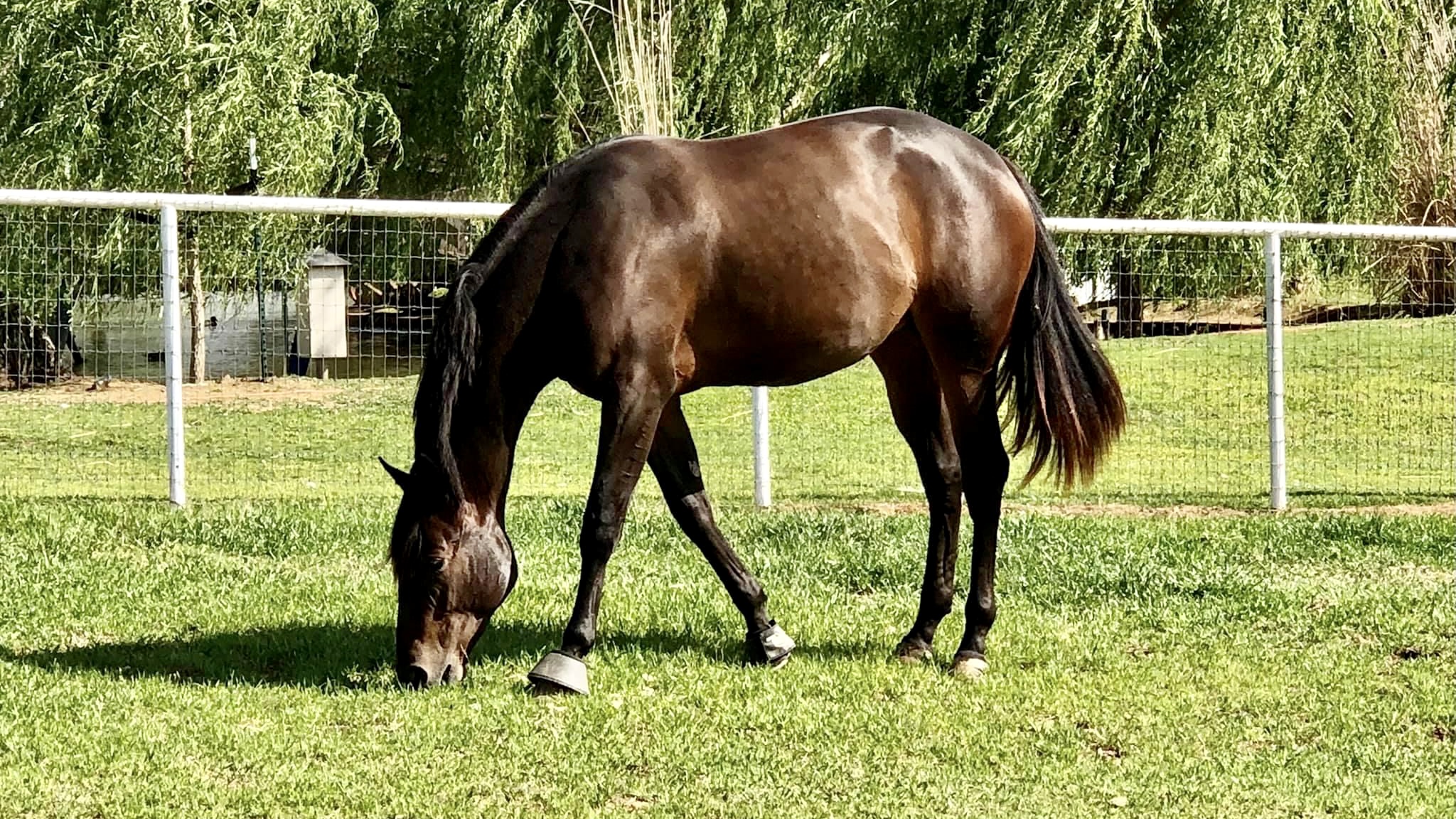 Cottingim reminds us that horses are built to graze all day, and there are significant gastric and mental benefits to giving them time to just be a horse. He recommends turning your horse out in dry conditions in a well-manicured field to avoid injury. He also suggests you consult a veterinarian to ensure that your horse can handle the rich grass, as some horses are sensitive to that.
Cottingim reminds us that horses are built to graze all day, and there are significant gastric and mental benefits to giving them time to just be a horse. He recommends turning your horse out in dry conditions in a well-manicured field to avoid injury. He also suggests you consult a veterinarian to ensure that your horse can handle the rich grass, as some horses are sensitive to that.
As with anything, Cottingim says it is essential to check in on them while turned out to make sure they aren’t getting into trouble. In addition, he believes regular turnout time is critical to good horse care, both during the show and off-season.
 Roberts is a big believer in the importance of turnout time for a horse’s mental health as well. While she says it is still essential to keep a horse in a routine of time in a stall or being tied, she likes to give them even more turnout time in the off-season to grow and “be a horse” (especially for the younger animals).
Roberts is a big believer in the importance of turnout time for a horse’s mental health as well. While she says it is still essential to keep a horse in a routine of time in a stall or being tied, she likes to give them even more turnout time in the off-season to grow and “be a horse” (especially for the younger animals).
Roberts advises utilizing a smaller turnout area if your horse is a hard player. On the other hand, if you have a horse more apt to stop and graze, a larger turnout is great for them. Again, when determining whether to turn your horse out alone or with company, consider the horse’s nature to put them with the right partner to avoid injury.
Free Longing
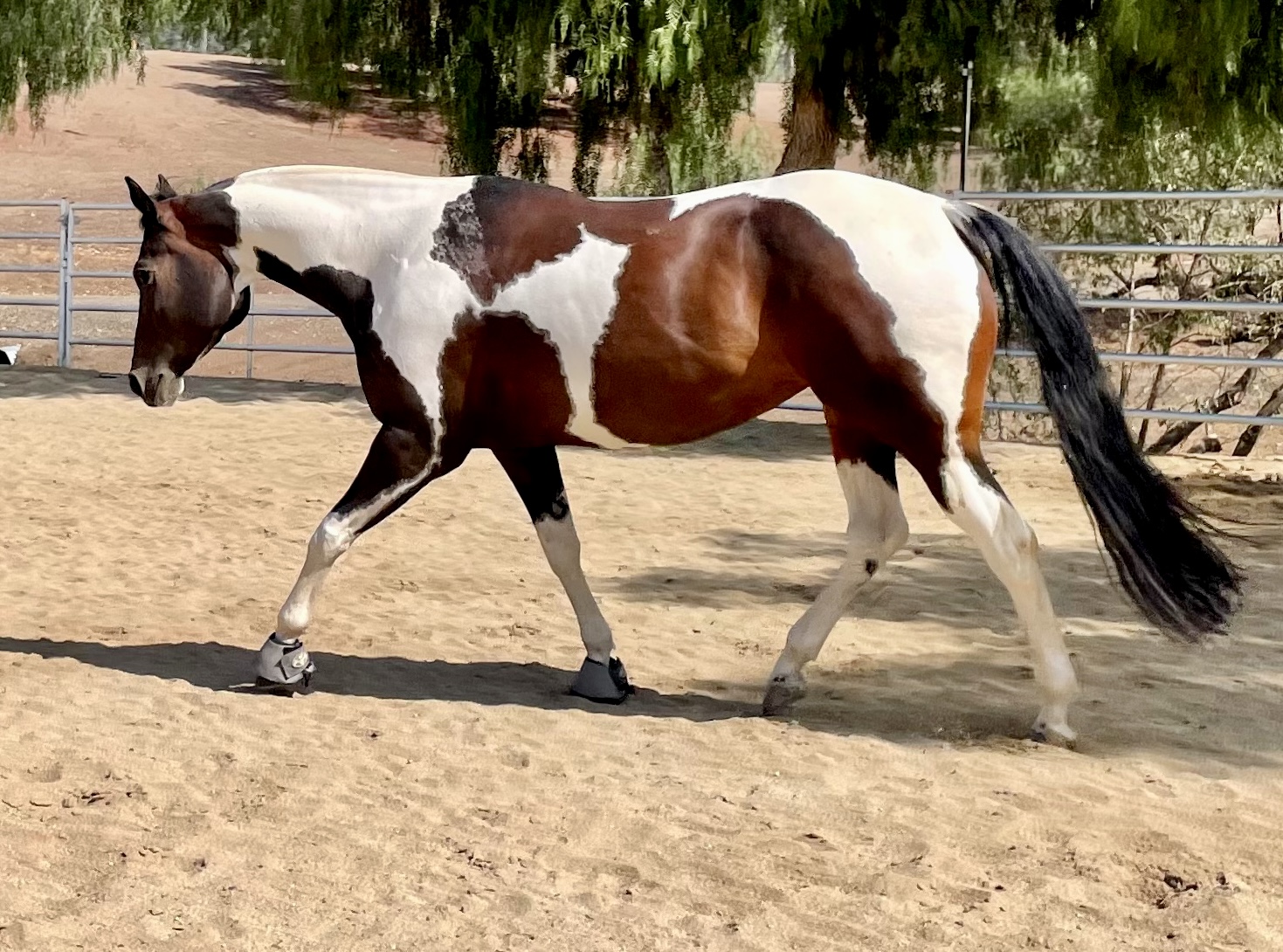 Cottingim is also a believer in the benefits of free longing. He does not advise chasing your horse around, but suggests encouraging your horse to move around freely in the arena or a safe paddock. He says this free, straight movement is great for their muscles and releasing energy when they aren’t in full show-work mode.
Cottingim is also a believer in the benefits of free longing. He does not advise chasing your horse around, but suggests encouraging your horse to move around freely in the arena or a safe paddock. He says this free, straight movement is great for their muscles and releasing energy when they aren’t in full show-work mode.
This is especially beneficial for the horses who tend to stand and graze during turnout, as it forces them to get their blood pumping and move around without the demands of moving like a pleasure horse.
Go On a Cruise
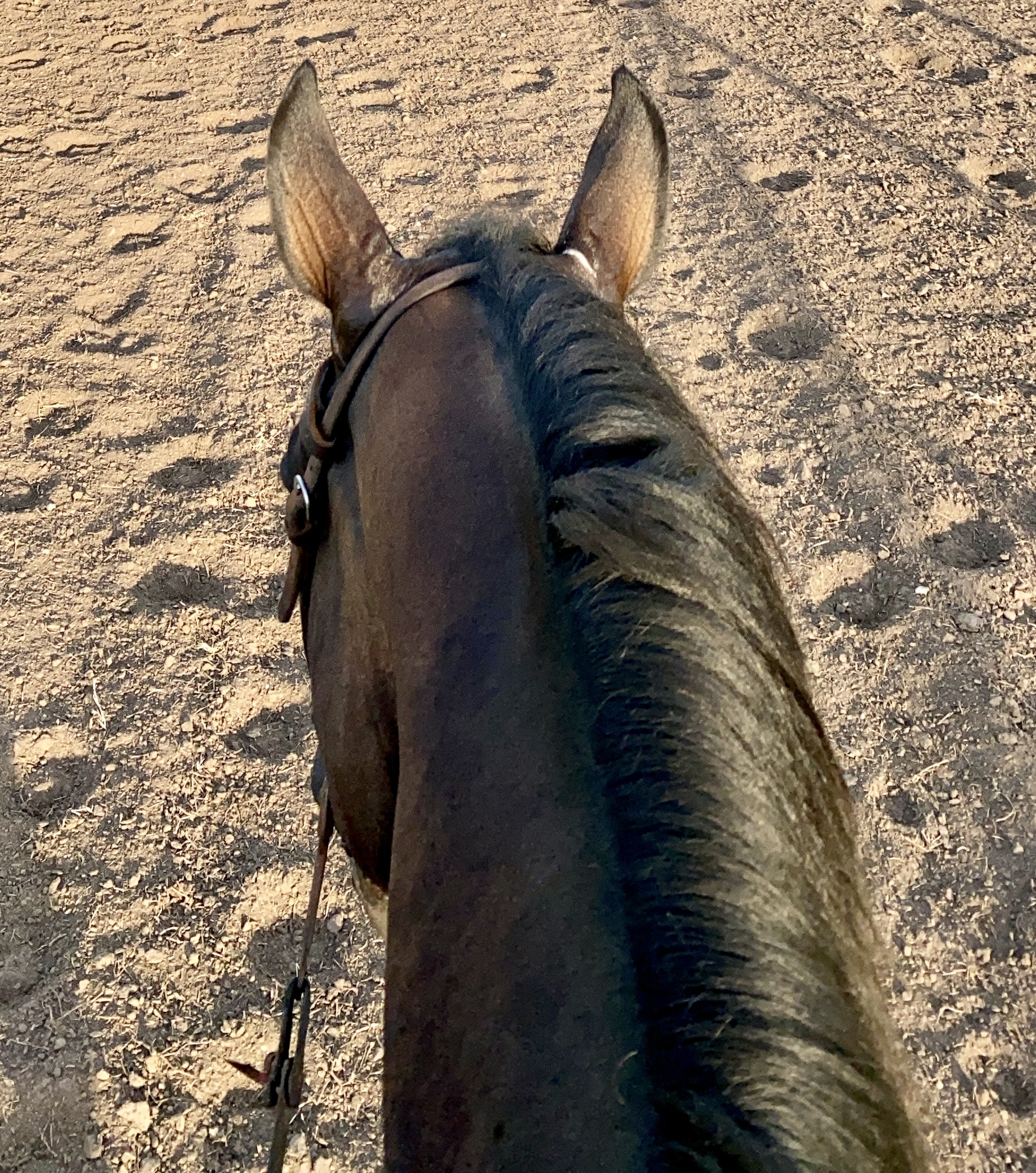 Cottingim suggests that owners use the off-season as a time to get to know their horse better. He says you can use the “free time” to focus on building a relationship with your equine partner, instead of needing to drill skills as if you’re preparing for a show or pattern.
Cottingim suggests that owners use the off-season as a time to get to know their horse better. He says you can use the “free time” to focus on building a relationship with your equine partner, instead of needing to drill skills as if you’re preparing for a show or pattern.
Ryan says you can use this time to ride around on a draped rein and, while still demanding they respond to your cues, allow them the freedom to move a little more forward or with their neck elevated a little more and take the time to “get the feel” for your horse’s natural way of going.
Walker uses the off-season to put her more-broke horses on a simple “physical maintenance” program, where she works on building muscle and endurance instead of traveling on the rail like they are in a pleasure class.
Walker recommends working on long-trotting and moving around in the middle of the arena instead of staying glued to the rail.
Travel Somewhere Different (Leave the Arena)
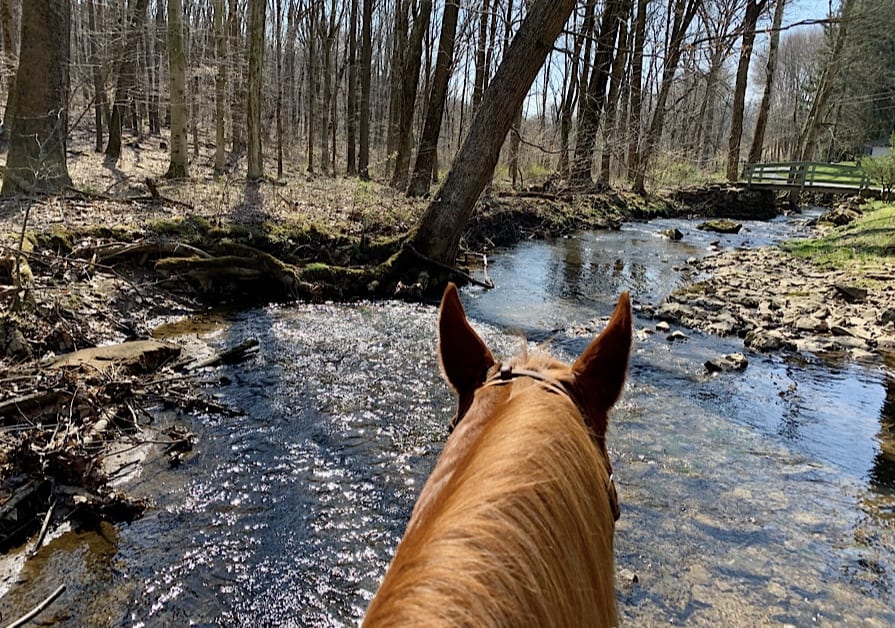 Roberts says the off-season is a great opportunity to get your horse out of the arena if you have an obedient mount. However, while some horses enjoy trail rides, which is great for their mind, others are less-confident on a true trail. She recommends taking these less-confident animals outside to a track or around the fence-line.
Roberts says the off-season is a great opportunity to get your horse out of the arena if you have an obedient mount. However, while some horses enjoy trail rides, which is great for their mind, others are less-confident on a true trail. She recommends taking these less-confident animals outside to a track or around the fence-line.
Alyse allows her animals to move a little more forward and look around more when outside the arena than inside. She believes it is good to naturally carry themselves, although you don’t want to undo essential training by allowing bad habits.
Cottingim is also a fan of getting your show horses out of the arena as it helps them become more well-adjusted to new situations at shows. He, too, likes to ride his horses around the fence-line or on well-manicured trails, depending on the nature of the specific horse.
Ryan also believes that it is okay to let your horse move with more propulsion and engage with their environment on these out of the arena trips. However, he says it is important for show horses to maintain their body and mind as a pleasure horse – you don’t want to lose the foundation of movement and responsiveness the second you leave the arena.
Spa Treatments
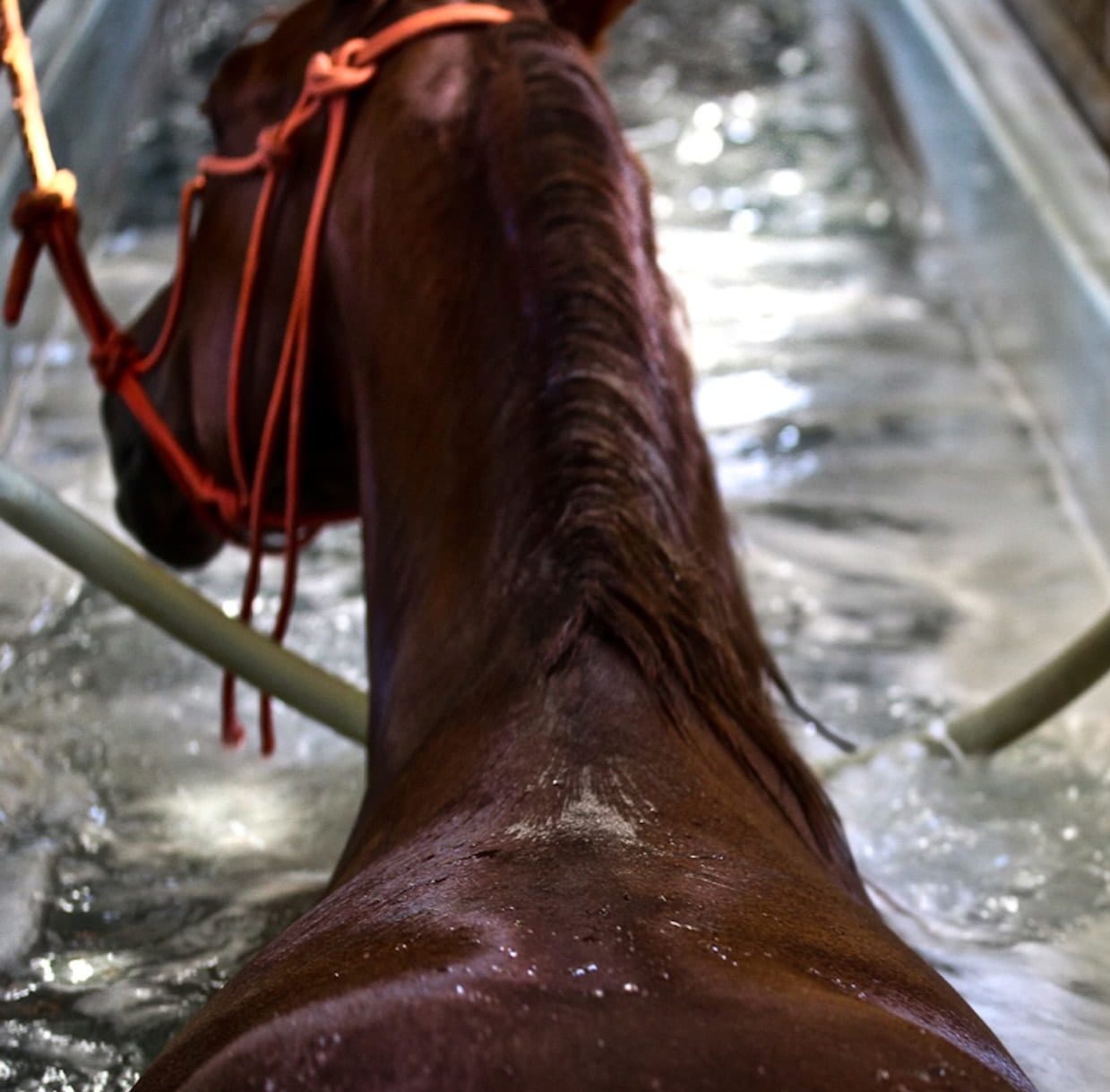 Cottingim is a fan of alternative medicine for show horses: massage, chiropractic, acupuncture, and PEMF treatments. He sees these as potentially beneficial maintenance therapies and advises if you find something that your particular horse responds well to, don’t stop the treatments when your horse isn’t showing.
Cottingim is a fan of alternative medicine for show horses: massage, chiropractic, acupuncture, and PEMF treatments. He sees these as potentially beneficial maintenance therapies and advises if you find something that your particular horse responds well to, don’t stop the treatments when your horse isn’t showing.
Again, all of our experts emphasize the importance of routine in your horse’s life. If your horse is on a routine schedule for alternative medicinal treatments during the show season, they advise maintaining that in the off-season.
Work On Something New
Roberts believes the off-season is a good time to try new skills with your horse. This will give them some new mental and physical stimulation, while reinforcing their foundation and building on it with new buttons and new maneuvers.
Some examples Roberts suggests include putting your horse in a harness and working on driving, changing leads, having them move out a little more or adding ground poles to a workout.
Ultimately, while horses are creatures of habit, it can be good to take them outside of their riding routine (within reason) to test new classes or to have fun with them without the pressure of drilling skills for a show.
Experience Natural Rhythms
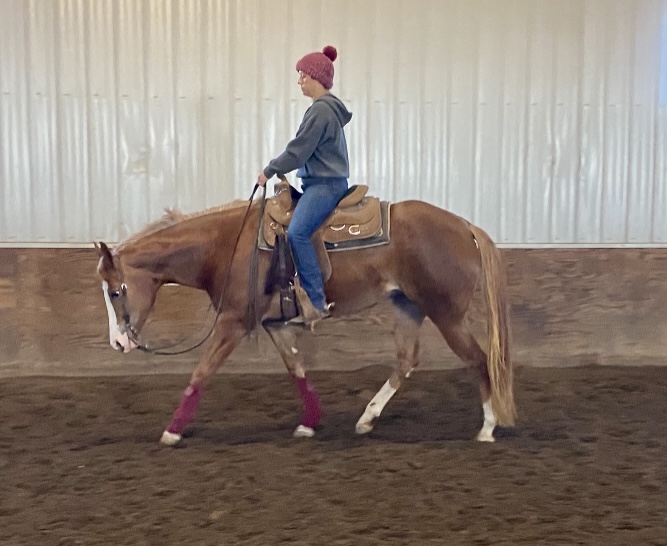 Walker has found great success in allowing her horses to experience more natural hormonal cycles in the off-season. Specifically, she turns off her barn lights. She takes the mares off Regumate for roughly 60 days after the AQHA World Show to allow the horses’ coats to come in a bit fuller and let them experience the more natural rhythms of their seasonal cycles. Walker has a heated barn, so her horses don’t get winter wooly coats, but they do thicken up a bit in what she calls their “winter fuzz.”
Walker has found great success in allowing her horses to experience more natural hormonal cycles in the off-season. Specifically, she turns off her barn lights. She takes the mares off Regumate for roughly 60 days after the AQHA World Show to allow the horses’ coats to come in a bit fuller and let them experience the more natural rhythms of their seasonal cycles. Walker has a heated barn, so her horses don’t get winter wooly coats, but they do thicken up a bit in what she calls their “winter fuzz.”
In doing this, Walker has found that her horses tend not to pop a haircoat mid-season. She believes this is because the horses’ bodies aren’t trying to compensate for the lack of seasons. Additionally, she has a few animals that stress more with hauls and shows, but they tend to enjoy this break that Walker refers to as their “winter detox.” She has found they will put on more weight, have a healthier coat when they shed out in the spring and show signs of less anxiety when they get on the road again.
***
All of our experts believe that horses are athletes that function best with routine. But, like any athlete, they benefit greatly from the mental and physical breaks from competition. Like any program, the goal should be to have your horse peaking at the major shows.
However, every peak comes with a valley and, so long as you plan your off-time to ensure it isn’t counter-productive, it will set your horse up for even greater success when you return to the pen.


